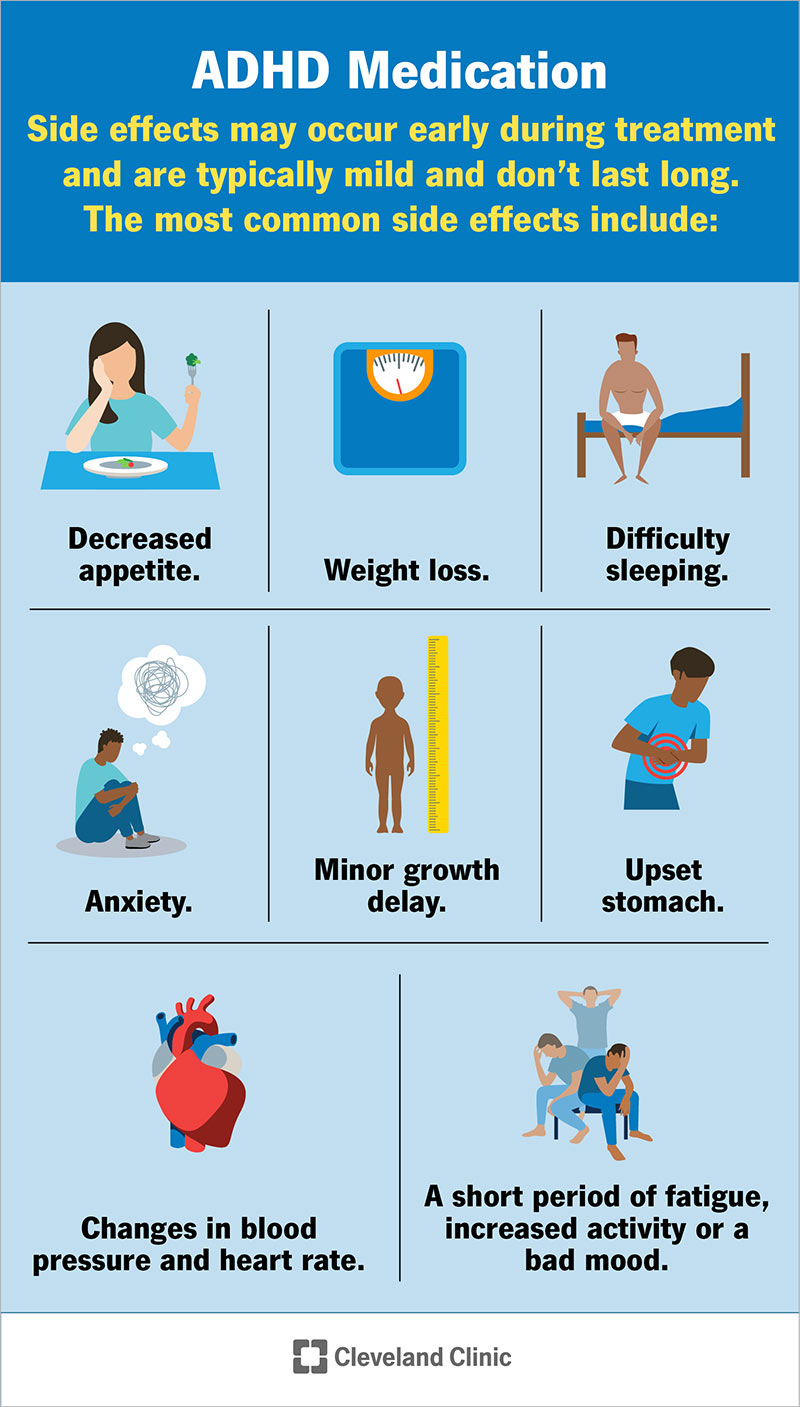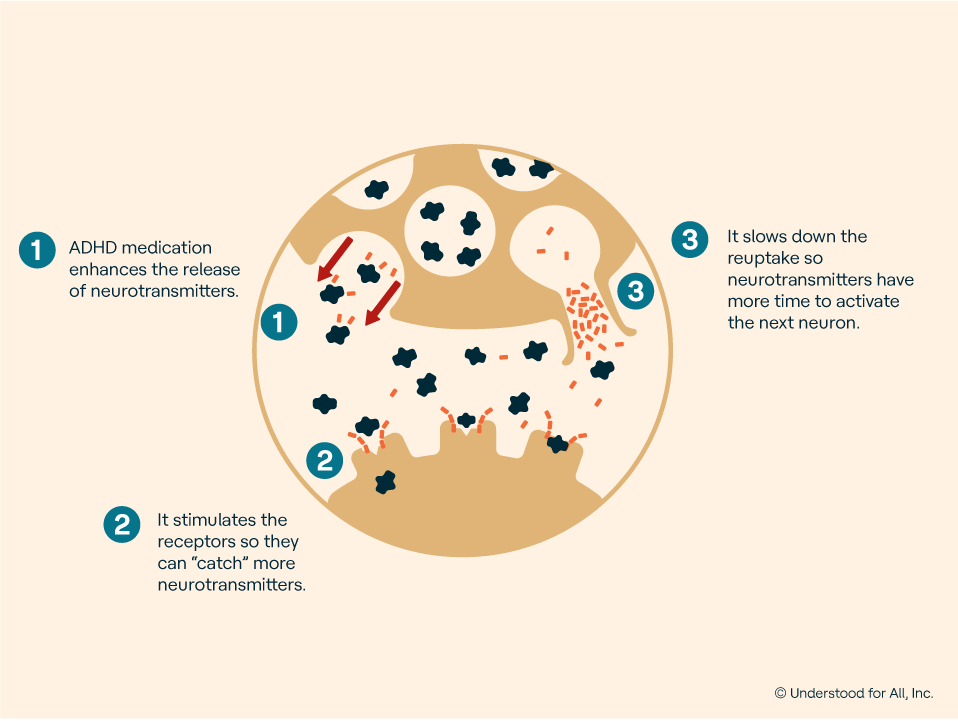Exploring Effective ADHD Treatment Options for All Ages
The complexities of Attention Shortage Attention Deficit Disorder Problem (ADHD) existing unique difficulties throughout various age teams, requiring a thorough exploration of reliable therapy choices. A combination of behavior treatments, pharmacological interventions, and way of life adjustments has revealed pledge in attending to the diverse needs of people with ADHD. The efficacy of these techniques can differ considerably based on personal circumstances, elevating important questions concerning customized techniques. As we check out the range of treatment modalities offered, it ends up being important to think about not only their prompt effects but additionally their long-lasting effects for people and families.
Understanding ADHD and Its Effect
Attention-Deficit/Hyperactivity Disorder (ADHD) is a neurodevelopmental problem characterized by consistent patterns of inattention, hyperactivity, and impulsivity that can dramatically affect various elements of a person's life. It normally manifests in childhood, although symptoms can linger into adulthood. The core signs of ADHD can interfere with instructional performance, impede social interactions, and complicate occupational undertakings.
People with ADHD typically battle with preserving concentrate on jobs, arranging tasks, and following through on directions, which can bring about academic underachievement (Depression Treatment). In social contexts, impulsivity may lead to troubles in forming and maintaining relationships, as people may disrupt conversations or make hasty choices without taking into consideration repercussions
Additionally, ADHD can co-occur with various other mental health problems, such as anxiousness and depression, additionally making complex medical diagnosis and therapy. The variability in sign presentation implies that ADHD can affect people in different ways, demanding a tailored method to monitoring. Comprehending ADHD's multifaceted effect is important for creating efficient approaches that support people in navigating daily obstacles and achieving their possibility. Comprehensive recognition of ADHD's nature and effects prepares for checking out ideal treatment options tailored per individual's requirements.
Behavioral Therapies for ADHD
Countless behavior therapies have actually been developed to efficiently attend to the difficulties related to ADHD, concentrating on customizing particular behaviors and fostering important skills. Among one of the most identified strategies are cognitive-behavioral treatment (CBT), moms and dad training, and social abilities training.
CBT helps individuals determine and transform unfavorable idea patterns and behaviors, promoting a more positive outlook and boosted self-regulation. This treatment typically consists of useful methods for handling impulsivity and enhancing company. Moms and dad training programs equip caregivers by equipping them with techniques to strengthen favorable habits and set regular boundaries, which can be particularly helpful for children with ADHD.
Social skills training is one more essential part, mentor people with ADHD just how to connect efficiently with peers - Depression Treatment. This approach usually entails role-playing and comments to boost interaction, cooperation, and dispute resolution skills
Integrating these behavior treatments right into a comprehensive therapy plan can significantly improve working and lifestyle for people with ADHD. Ultimately, the performance of these treatments depends upon tailored methods that consider the distinct requirements of everyone, therefore fostering durability and adaptability in life.
Medication Options Available
For lots of individuals with ADHD, medicine can play a significant function in taking care of signs and symptoms and boosting total functioning. The two primary classifications of medicines recommended for ADHD are energizers and non-stimulants.
Energizers, such as methylphenidate and amphetamine-based drugs, are one of the most generally utilized therapies. These medications work by boosting the degrees of natural chemicals, especially dopamine and norepinephrine, in the brain, which helps enhance interest and decrease impulsivity and attention deficit disorder. Therapist for ADHD They frequently generate quick results, making them a recommended option for several clients.

It is crucial for health care companies to conduct a detailed evaluation to determine one of the most proper medicine based upon individual demands, clinical history, and potential negative effects. Normal follow-up and monitoring are additionally vital to guarantee the effectiveness of the picked treatment and to make any necessary changes.
Way Of Life Changes to Take Into Consideration
Taking care of ADHD properly expands beyond medicine, as way of life changes can considerably boost overall health and symptom control. Including organized regimens is essential; regular routines help individuals with ADHD manage their time efficiently and minimize sensations of bewilder.
Normal exercise is an additional important part. Workout not just helps to boost concentration however also increases mood and minimizes anxiety degrees. Tasks such as yoga or team sports can be especially valuable, advertising both physical conditioning and social interaction.
Nourishment also plays a crucial function. Depression Treatment. A well balanced diet regimen abundant in omega-3 fats, entire grains, and lean proteins can contribute to enhanced focus and cognitive function. Restricting sugar and refined foods is a good idea, as these can worsen hyperactivity and impulsivity
Sleep health is necessary for taking care of ADHD signs and symptoms. Establishing a normal sleep schedule and developing a peaceful environment can boost rest top quality, causing better focus and psychological regulation.
Alternative and Alternative Approaches
Alternate and holistic techniques to ADHD therapy provide a varied series of options that enhance standard methods. These strategies frequently concentrate on lifestyle modifications, dietary treatments, and healing techniques that intend to enhance overall health while addressing ADHD symptoms.

Mindfulness and behavior modifications are additionally getting grip as holistic treatments. Practices such as yoga exercise, reflection, and cognitive-behavioral treatment can cultivate self-regulation and boost interest. These techniques sustain emotional durability, which is particularly useful for individuals with ADHD.
Herbal supplements, such as ginkgo biloba and ginseng, are often checked out; however, it is essential to consult healthcare experts before integrating these right into therapy plans. While choice and holistic approaches can supply valuable support, they should ideally be used combined with evidence-based therapies to attain ideal outcomes for handling ADHD throughout any ages.
Verdict
In recap, reliable ADHD therapy demands a detailed method that includes behavior therapies, medication, way of living modifications, and holistic approaches. Customized treatments can substantially enhance individuals' functioning and high quality of life, while proper drug guarantees ideal symptom monitoring. Moreover, embracing organized regimens, engaging in regular exercise, and exercising mindfulness can boost emotional guideline and focus. This multifaceted strategy highlights the importance of personalized treatment in attending to the varied needs of individuals with ADHD across any age groups.